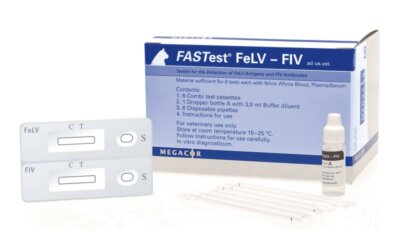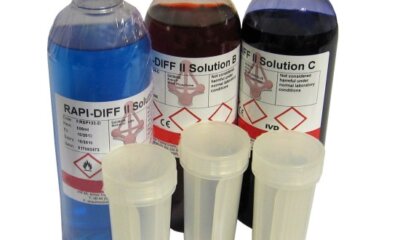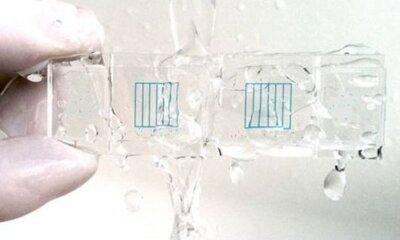Home > Veterinary news from industry experts
Veterinary news from industry experts
However advanced the laboratory technology, and however expert the veterinary practitioner, the critical step in any consultation or veterinary diagnostic test is communicating with the pet owner.
In the treatment of sick and injured animals, the animal’s owner is the veterinary practitioner’s greatest ally.
Read More
As its alternative name suggests, the lungworm parasite was not always a disease common among cats and dogs in the UK. The first case of ‘French Heartworm’ appeared in 1975. In the 40 years since, the parasite has established hotspots in the UK’s more southerly counties, with cases reported as far north as Paisley in Scotland.
Read More
In the veterinary laboratory or out in the field, the handheld veterinary refractometer is a compact and effective diagnostic aid for detecting early indications of diseases including Feline Infectious Peritonitis (FIPV) and Chronic Kidney Disease (CKD).
Read More
Alarmingly low vaccination rates among UK cats mean that early detection and screening, with a separate or combination FIV and FeLV diagnostic test kit, is more important than ever.
Feline Leukaemia Virus (FeLV) and Feline Immunodeficiency Virus (FIV) are two of the most serious cat diseases and among the most infectious.
Read More
Veterinary apps you can download to your smartphone could mean that home-based veterinary diagnostic testing and even treatment is just a screen-swipe away.
Veterinary smartphone apps could change the way pet owners interact with their veterinary surgery.
Read More
It’s an unfortunate fact that most things of interest in veterinary microscopy are all more or less colourless. Vetlab’s RAPI-DIFF II microscope slide staining kits help time-strapped veterinary laboratories make the invisible clearly visible.
Read More
Coccidiosis is an intestinal disease caused by single-celled coccidian parasites. Though there are several species of coccidian protozoa, all must get inside the cells lining the intestines of their host to reproduce.
Read More
Super-bug resistance to antimicrobial treatment is a serious problem for pig, poultry and cattle farmers in the UK and worldwide. Many antibiotics ‘of last resort’ are longer effective against infections caused by bacteria such as Klebsiella pneumoniae and Escherichia coli.
Read More
Planning a mobile veterinary laboratory is less about giving the right answers and more about making sure you’ve asked the right questions.
Whatever you can do in a mobile test lab, you can do better in a well equipped, purpose-built veterinary laboratory.
Read More
Selected, trained and accredited, working dogs have achieved – and even deserve, professional status. With private medical care, the equivalent of staff associations and even a retirement plan, some canine professionals seem to have better career prospects than their human equivalents.
Read More












